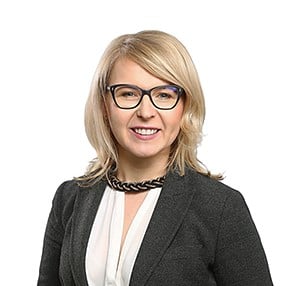
KCR’s Trial Execution Consultancy often analyzes what needs trigger consulting engagement from our full-service clients. With years of accumulated experience, from landscaping and feasibility assessment to regulatory strategy and dossier advisement, we explore some key elements to consider when seeking a consultancy.
1. The Nature of the Assets
The type of compound being considered for development is a key indicator for the selection of an external consultancy. Most modern development programs contain biologics of various types. However, due to the outbreak of COVID-19, there was an increased need for vaccine and neutralized antibodies, such as single-chain or other forms of domain antibody development. This clearly consumed significant consulting resources, so the need for consultants with vaccine experience was in high demand in 2020 and early 2021. Today, not only vaccine experts are heavily tapped for their specialized skills. The medical field is making efforts to further capitalize on the benefits of viral vectors, continuing research on CNS targets and various types of cancers.
With assets like these in portfolios, sponsors should seek input from physicians and professionals in specialized fields, like molecular biologists and geneticists with clinical medicine and gene therapy experience in a consultancy. These expert consultants are not only more experienced in clinical nature, but also understand the application methods needed in the context of pre-clinical and clinical developments. For instance, the design considerations in gene therapy relating to regulatory oversights on the acceptability of animal models and relevant data requirements for registration.
Is there an asset which does not need consultant support? Programs targeting well-known mechanisms of action or small molecules would indeed consider less regulatory-focused engagement, and would need more execution-focused support, like research on suitable patient profiles and target jurisdiction for study placement.
2. The Business Model
Concerning business models, it’s important to note whether you are interested in short vs. long-term development (licensing after proof of concept or intent to develop asset via pivotal studies and commercialization) in conjunction with your status as a public or private sponsor company. The first one is most important, as it will dictate the span of development planning. Companies designed for early development will need highly efficient ways to exit pre-clinical development and collect safety and preliminary data to engage potential buyers and the development strategy will be heavily phase 1 focused. Leadership coaches often repeat ‘learn fast, fail fast’ and people tend to attach the statement to early phase companies or incubators. The practicalities of early phase focus means that sponsors should fully engage consultancy early on, as not to burn time and effort on pivotal trial attempts, while such strategies may only materialize under a potential buyer.
3. The Geographical Region of the Target Market and Jurisdiction
Traditionally, selecting consultants relies heavily on biological plausibility and a mechanistic understanding of the asset, but it is important to consider their experience in the geographical region of the target markets. The FDA, EMA, and recently PMDA are keen to the potential differences of variations in drug metabolism and heterogeneity in disease presentation. Therefore, engaging regulatory authorities is often determined by the target market for a sponsor’s given asset in addition to the nature of the asset as aforementioned. For example, MHRA has recently been a target agency for gene therapies, while German PEI is recommended as a viable partner for nano technologies. Choosing to be represented by a regulatory consultant at an agency hearing is often a factor of success. Typically, the interlocutors are highly experienced in agency interactions and have geographic knowledge to ensure ascertainments of scientific nuances with appropriate cultural orientation.
4. The Collective Skills
Lastly (but in our judgement – the most critical), the company seeking consultancy should run an internal assessment of their internal skill sets to determine preference of in-house vs. external procurements. One key figure in the process is the sponsor’s Medical Officer. A physician fluent in the therapeutic area critical to the asset is always important to have in-house instead of via a consultancy. Otherwise, the company may face challenges with consultant availability and quick and firm decision making. Certain expertise simply requires exclusivity.
Companies may consider seeking external pre-clinical, clinical, regulatory and execution expertise. With a strong CSO or CMO as the backbone, practically any other skill can be outsourced. The only recommendation worth consideration is to choose a single area of expertise. A company choosing to build its own medical operation may not necessarily want to integrate an external one – as this may lead to inefficiency driven by unexpected tensions in functionalities.
The four elements outlined can serve as a starting point for companies initiating clinical development. Obviously, this is not sensible for large Pharma, as long-term business models and in-house skill sets will not likely require external consultancy. Modern R&D is certainly continuing to push the bar for the application of innovative therapies. With that, some may consider it impractical to rely on internal skill set creation, as this may be time consuming or unattainable. Nonetheless, consulting options are readily available and provide access to like-minded teams that can facilitate development at the right pace and an acceptable cost.
Learn more here.
About

Dr. Anna Baran
KCR Chief Medical Officer & Head of KCR Consulting
Dr. Anna Baran is the Chief Medical Officer and Head of Consulting at KCR, an international clinical development solutions provider for the biotechnology and pharmaceutical industries. Dr. Baran has extensive clinical and medical experience, having conducted research for pre-clinical and clinical projects for 10+ years and providing drug development consultancy for international R&D projects. Dr. Baran holds a medical degree and a post-graduate degree in healthcare management.